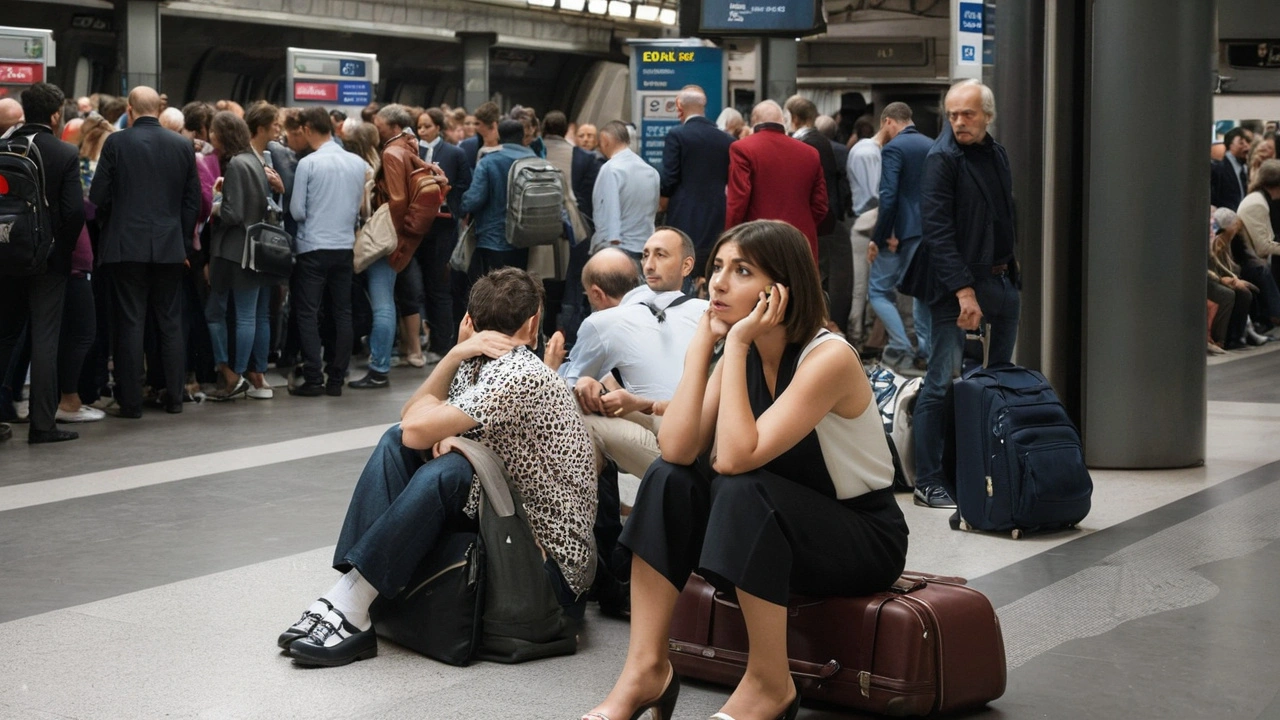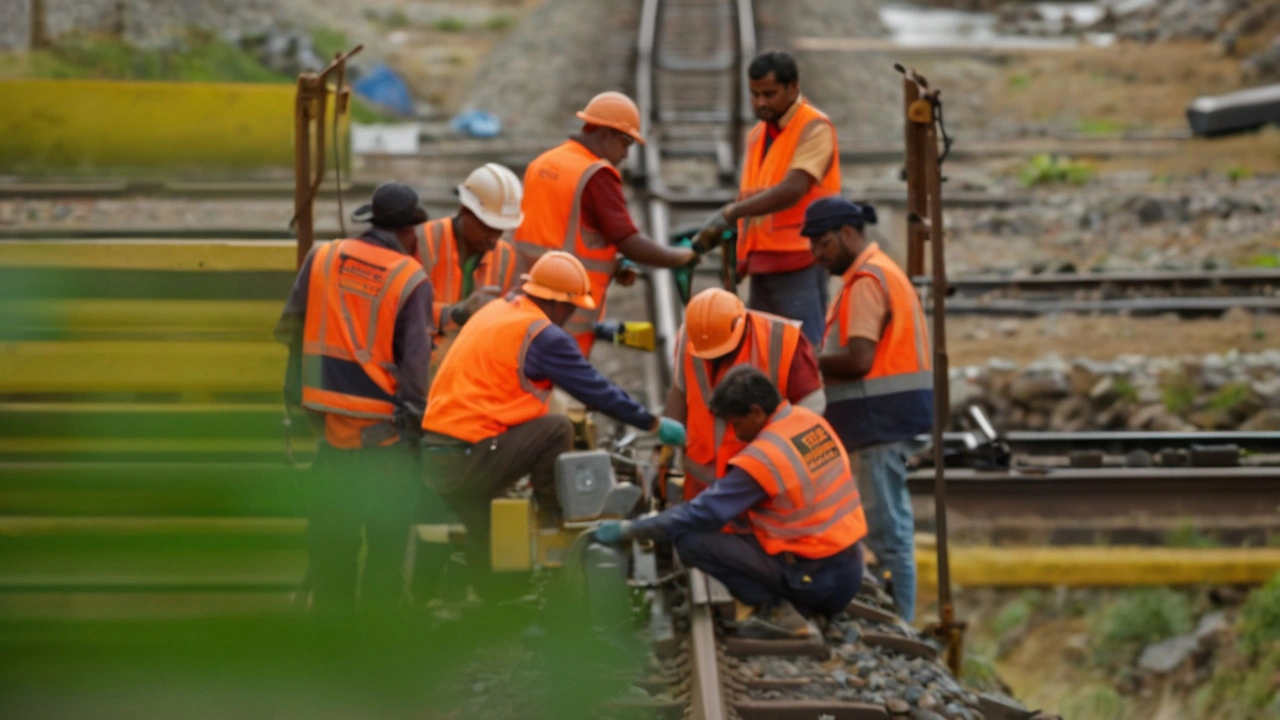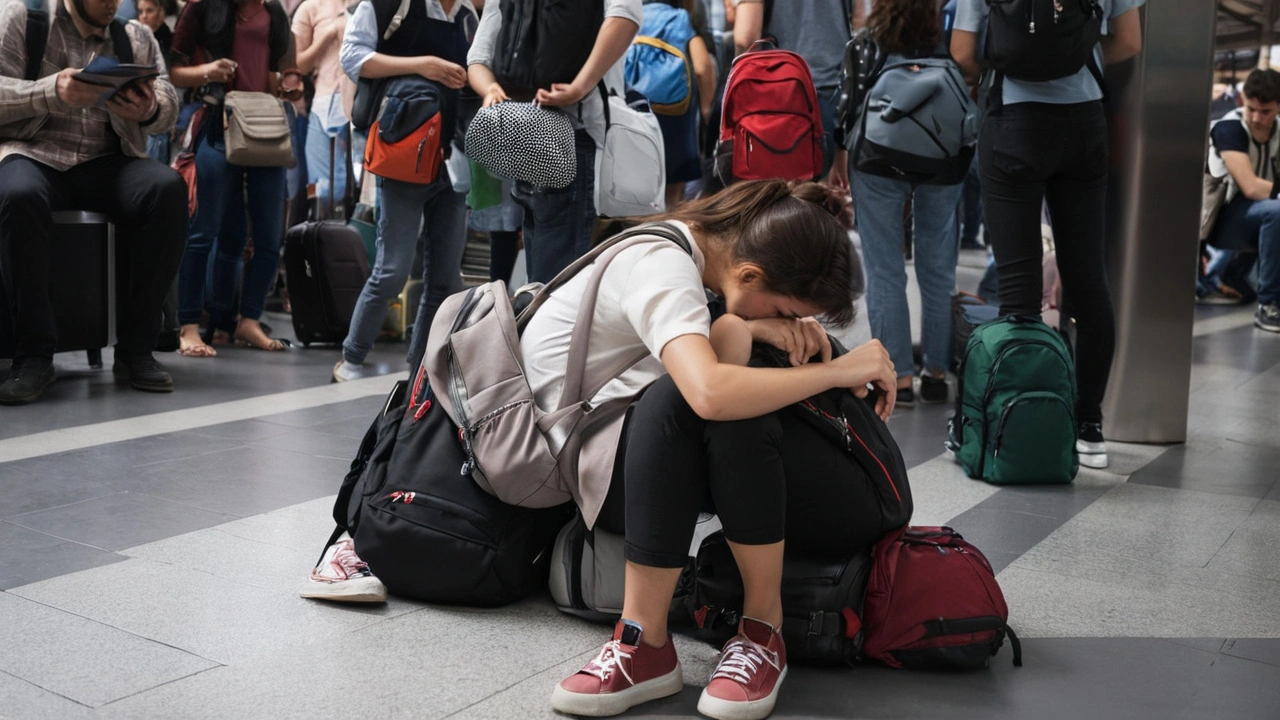
Arson Attacks Cause Major Disruptions to French High-Speed Rail Services
On Friday, France faced a significant blow to its transportation network as multiple arson attacks targeted the high-speed rail lines operated by the national railway company, SNCF. These premeditated acts of vandalism coincided with the highly sensitive opening ceremony of the Paris Olympics, leading to severe travel disruptions across the western, northern, and eastern regions of the country. The incidents have had far-reaching effects, disrupting the travel plans of approximately 800,000 people. Government representatives have promptly condemned these acts and called for rigorous investigations to bring the perpetrators to justice.
Impact on Travel and Daily Life
The attacks on the French high-speed rail network, particularly the TGV (Train à Grande Vitesse) services, have notably affected not only those traveling for the Olympics but also thousands of French families who were just beginning their summer holidays. As the stations filled with anxious commuters and vacationers, the mood was one of frustration and dismay. Many had no choice but to wait indefinitely as SNCF rail employees worked tirelessly to restore the services and manage the crowds. The chaos was palpable as cancellations and delays cascaded through the system, causing missed connections and upending meticulously planned itineraries.

Statements and Official Reactions
Government representatives swiftly responded, condemning these 'malicious actions.' Local law enforcement agencies, alongside national security services, were immediately tasked with investigating the incidents. Interior Minister Gérald Darmanin vowed stringent measures to ensure the safety and security of public transportation. He labeled the attacks as timed 'deliberately to cause maximum disruption.' President Emmanuel Macron also addressed the nation, urging calm and patience while expressing his confidence in the authorities' ability to apprehend those responsible.
Ongoing Investigations and Challenges
As of now, investigations are ongoing, but no suspects have been identified or detained. Law enforcement agencies are thoroughly examining surveillance footage and gathering firsthand accounts from witnesses. The forensic analysis of the crime scenes aims to unearth any possible leads or evidence that could point towards the culprits. Despite these efforts, officials face numerous challenges, including a lack of immediate clues and the scattered nature of the attacks, which span multiple regions.
In an effort to tighten security, additional surveillance and patrols have been deployed across major railway junctions and other critical infrastructure. The authorities have urged the public to remain vigilant and report any suspicious activities. Security protocols have been reviewed and enhanced, with extra measures implemented specifically around events related to the Olympics to prevent further disruptions.
Background and Context
The attacks come at a time when France, and particularly Paris, is under a global spotlight due to the Olympic Games. The timing has fueled speculations about whether these acts were directly aimed at undermining the event. The speculation is reminiscent of past instances where high-profile events were targeted to attract maximum attention. Though no direct evidence has surfaced linking the incidents to the Games, the context raises inevitable questions.
Historically, France's transportation network has faced numerous challenges, including strikes, technical failures, and occasional acts of sabotage. However, this recent spate of attacks represents a new level of coordination and forethought, setting a worrying precedent. The French rail system is a symbol of national pride and a critical backbone to the country's economy and daily life. Any disruption to this infrastructure has wide-ranging ramifications, both practically and symbolically.
Public Response and Reactions
The public's response has been one of mixed emotions. Social media platforms buzzed with updates, complaints, and expressions of solidarity. Many travelers took to Twitter and Facebook to share their experiences and frustrations, with hashtags like #RailChaos and #SNCFDisaster trending for hours. Photos and videos depicting crowded stations and exasperated passengers quickly went viral. Public opinion has wavered between outrage at the perpetrators and empathy for the affected travelers and SNCF workers struggling to mitigate the situation.
Some commentators have noted the resilience and patience of the French public in the face of such adversities. Despite the significant inconvenience, spirit and camaraderie among travelers have shone through, with many aiding fellow passengers, offering snacks, water, or words of comfort. These moments of humanity contrasted starkly with the malicious intent behind the attacks and served as a reminder of communal strength.

Looking Forward
The future holds critical challenges for the French rail system and national authorities. As investigations continue, the government has vowed to improve security measures and ensure the safety of all travelers. This incident is likely to spark discussions about the vulnerabilities within national infrastructure and the steps needed to safeguard it in the future. Questions on how such coordinated attacks could take place without prior detection will likely lead to reassessments of current security protocols and their efficiency.
For SNCF, the incident has highlighted the necessity of robust emergency response strategies. The organization's capacity to handle acute crises will be scrutinized, and possible overhauls in operational procedures may follow. Public confidence must be restored, and a transparent, proactive approach will be essential in regaining trust.
Conclusion
In times of crisis, the resilience of systems and the spirit of the people are truly tested. As France grapples with the aftermath of these arson attacks, the collective effort of its citizens and authorities will play a pivotal role in overcoming the immediate challenges and preventing future disruptions. The French high-speed rail system, a symbol of progress and innovation, must now also symbolize resilience and recovery.